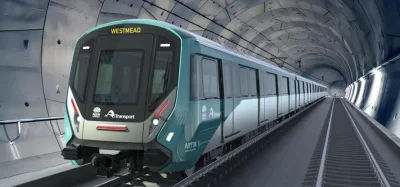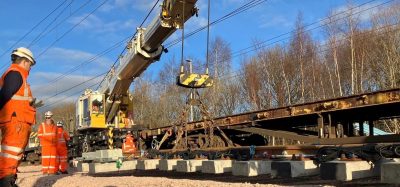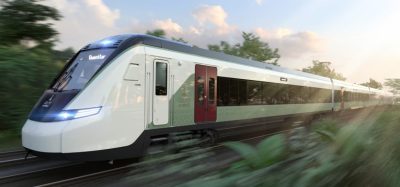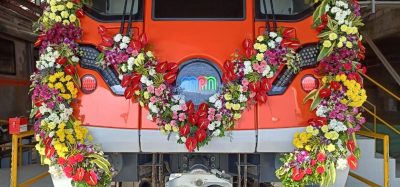Govia Thameslink Railway’s commitment to meeting key environmental targets
Posted: 4 May 2020 | Jason Brooker | No comments yet
For Global Railway Review’s ‘Improving Rail’s Environmental Impact’ series, Jason Brooker, Head of Environment at Govia Thameslink Railway, explains the initiatives the train operating company has established to contribute to rail’s role in reducing Britain’s carbon footprint.


As the world faces an unprecedented challenge in the fight against coronavirus, things have changed and fast. As a business, we’ve had to adapt to ensure we’re doing our bit to support the national effort. As such, timings for some of initiatives have shifted as we prioritise our resources to best support key workers, the public and our staff during the crisis. Nevertheless, Govia Thameslink Railway (GTR) remains committed to meeting key environmental targets.
In 2019, the British government committed to achieving a ‘net zero carbons emissions’ target by 2050. Whilst this date might seem far off, in reality, it will take businesses and wider society many years to achieve a transition of this scale.
At GTR, improving our environmental impact is a core company value.
For the rail industry, this is an exciting opportunity. Already one of the most sustainable means of mass transport, the increased use of rail can play a huge role in reducing the nation’s carbon footprint.
That isn’t to say, however, that we should rest on our laurels, but strive for improvement as quickly and effectively as possible, maintaining rail’s position as the most efficient form of transport.
Across our network, we have established several initiatives to better our environmental impact and improve the lives of the people in the communities we serve.
At GTR, improving our environmental impact is a core company value. Across our network, we have established several initiatives to better our environmental impact and improve the lives of the people in the communities we serve. This isn’t just for the sake of compliance with government targets, but, we believe a core part of passenger expectations for cleaner, greener and environmentally responsible travel providers.
Investing in technologies that make a difference
One of the biggest differences we can make is in the amount of energy our trains need to operate, which is one of the factors behind our recent roll-out of new stock across the network. This has allowed for a number of breakthroughs in terms of energy use, management and efficiency.
On-train intelligence systems allow us to monitor, record and analyse the fleet’s energy, to understand the demand pattern on the railway system working with our delivery partners to always better our services. Using an innovative regenerative braking system, our trains recycle energy used and give it back to the line, as well as improving our braking performance. This alongside further enhancement in future Automatic Train Operation (ATO) with improved acceleration and deceleration rates, will allow for enhanced timetable introduction.
Our Enhanced ATO system enables us improved acceleration and deceleration rates, reducing the time taken for a train to leave a station and arrive at the next. Our new Class 700 and Class 717 carriages are also roughly 20 per cent lighter than the previous generation; the significant reductions of the weight of the trains creates less wear and tear on tracks and combined with the dynamic braking system, making Great Northern’s new 717s 33 per cent more energy efficient than the 313s. Furthermore, the 717s have also brought a 50 per cent increase in regen per kWh, thanks to the new braking system.
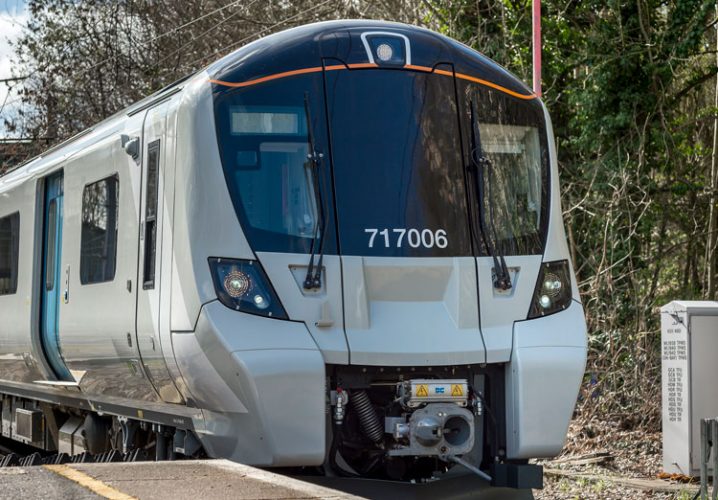

GTR invested £2 billion on a multi-fleet roll-out programme, and Class 717s have brought a 50 per cent increase in regen per kWh, thanks to their new braking system.
Encouraging sustainability in other transport modes
To successfully improve the overall sustainability of our network, we have encouraged lower emissions travel to and from stations so passengers can have cleaner end-to-end journeys. One way we’re doing this is by introducing electric vehicle charging hubs at two of our stations, Haywards Heath and Hatfield.
At Haywards Heath, we will be introducing a dedicated electric vehicle charging hub with provision for 12 ‘active points,’ meaning a minimum of 12 passengers can charge their vehicle at any one time. We’ve also included an additional 15 ‘passive points,’ allowing us to increase the total number of charging points to 27 should we see an increase in the number of passengers using them.
Hatfield will also receive a dedicated electric vehicle charging hub, but with provision for 27 active points. As we introduce these new hubs, we’ll be monitoring how regularly our passengers use them in the hope that they trigger and encourage demand as more customers see low-carbon travel as a part of everyday life.
Generating green opportunities
As the country begins to electrify more and more of its infrastructure, there is a real need for an increase in sustainable electricity generation. As the UK’s largest rail franchise, we have the available resources to give back to the communities we serve, by generating sustainable energy at an increasing rate across the network.
As the UK’s largest rail franchise, we have the available resources to give back to the communities we serve, by generating sustainable energy at an increasing rate across the network.
We are working with Energy Garden to install potentially as many as 2,000 solar panels across both the Hornsey and Streatham Hill depots, with a view to expand this further across the network. However, this remains at an early stage and the final number of panels won’t be known until the structural surveys have been carried out.
The revenue from selling the generated energy back to the grid will be used to support the installation and maintenance of community gardens (‘Energy Gardens’) in green spaces on our network and stations in London, boosting biodiversity and making stations more pleasant places to be.
This work in stations aligns with a broader re-wilding policy across our network to protect natural wildlife and enhancing the ecological value of our sites. As part of the Passenger Benefit Fund (PBF), we are landscaping some of our stations to make our rewilding initiative possible. This will see wildflower meadows hardy shrubs and perennials planted in green spaces across our network.
Reduced single-use plastics
As more and more consumers do their bit and use refillable water bottles whilst travelling, it is critical that businesses, like ours, enable customers to enjoy convenience when being sustainable.
One of the biggest challenges facing the UK in achieving a sustainable future is phasing out single-use plastics and this is no different for the rail industry. As more and more consumers do their bit and use refillable water bottles whilst travelling, it is critical that businesses, like ours, enable customers to enjoy convenience when being sustainable.
As part of the PBF, we will be installing water drinking fountains across the GTR network. This project aligns with our wider work to support the National Refill Campaign to provide free drinking water at our stations – which we currently support in partnership with our station tenants – all of which helps to reduce the need for single-use plastics.
Closing statement
As well as focusing on the detail of individual initiatives and projects, there is the bigger challenge of encouraging more people to replace carbon-intensive journeys by car or plane with lower carbon travel by rail.
The rail industry is in a well-equipped position to both continue improving its own environmental impact and to set a positive example for other modes of transport and parts of society. As well as focusing on the detail of individual initiatives and projects, there is the bigger challenge of encouraging more people to replace carbon-intensive journeys by car or plane with lower carbon travel by rail.
For the UK government to meet its 2050 net zero target, we expect the rail industry will need to play a key role in facilitating their efforts to make this achievable. Not just by investing in new trains and upgrades, but by going the extra mile to have that proactive role across the communities it serves, in cleaning up the environment, enabling others to be more sustainable and making use of the infrastructure at our disposal.
Related topics
Automatic Train Operation/Autonomous Train Control (ATO/ATC), Coronavirus/COVID-19, Electric/Hybrid Rolling Stock, Sustainability/Decarbonisation, Technology & Software



